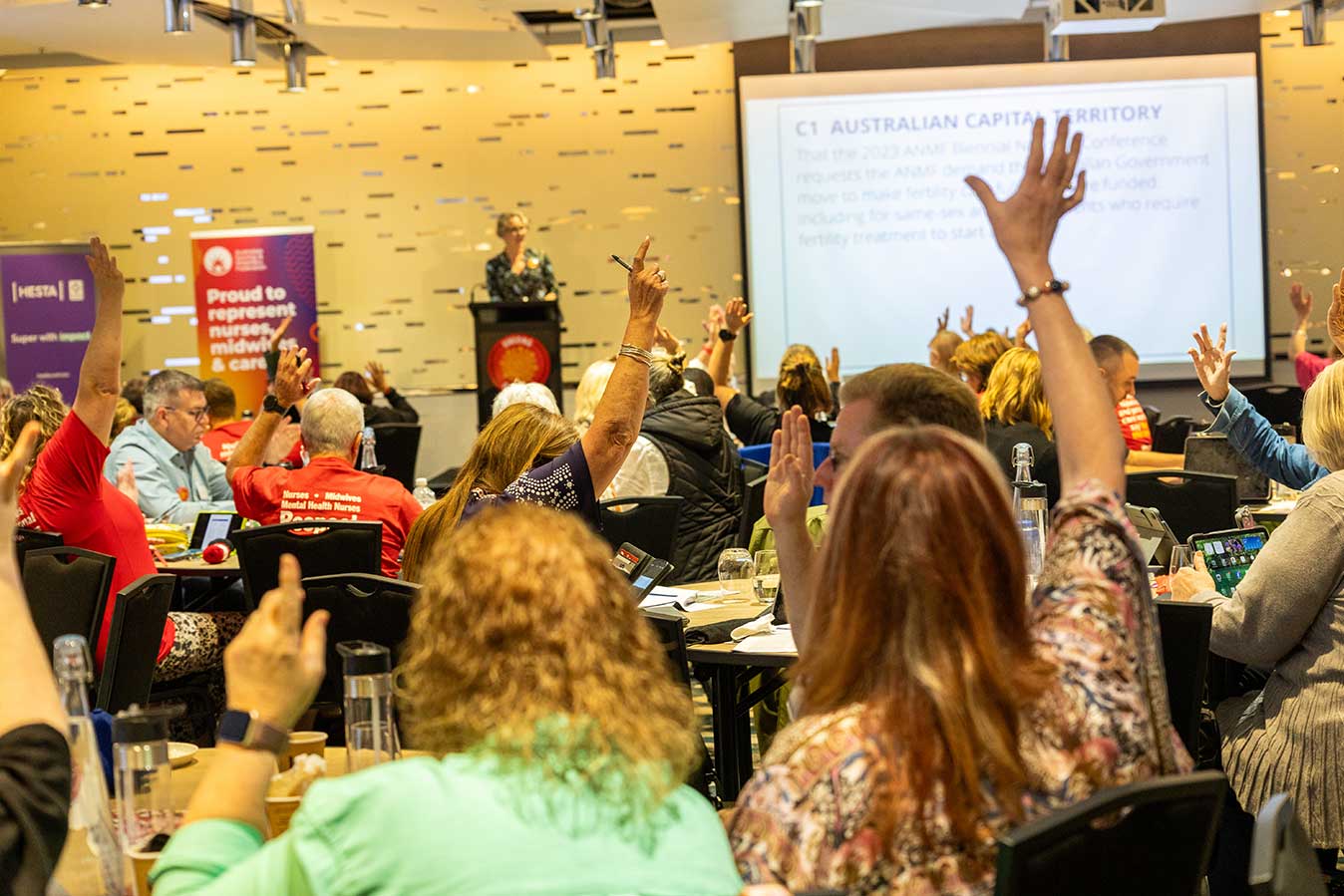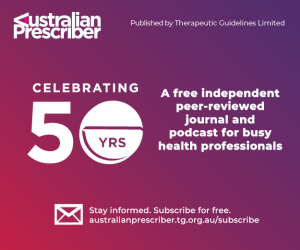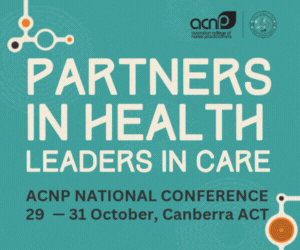The collective might of the country’s largest union, the Australian Nursing and Midwifery Federation (ANMF), was on full display at the 16th Biennial National Conference in Sydney last week, with more than one hundred nurse, midwife and carer worker delegates gathering to debate key issues across the professions and help map out the agenda for the next two years.
The conference theme, ‘A Collective Force For Change’, signified the union’s increasing influence over the past few years, including driving long-overdue aged care reforms and, importantly, the hard work that remains to advance the professions through solidarity and action.
In her opening address, ANMF Federal President Sally-Anne Jones said the professions had reached a critical juncture.
“The conference comes at a crossroads in time,” she said.
“We have a pandemic that is receding behind us, a global critical nursing and midwifery workforce shortage ahead of us, [and] a federal government who’s demonstrating a genuine commitment to backing nursing and midwifery as legitimate solutions to the growing health crisis in Australia.”
“We commit our collective force as a group of the largest union in Australia to make the health system equity and equality visible, to highlight the shared stake we have in our health and the health of our future generations, to exercising our collective responsibilities as union activists, to grow our membership, and to understand the union’s role within the community,” she added.
“We also commit to continue to disclose the consequences of inaction and disinvestment in nursing and midwifery so it’s understood by everybody, [and] to continue to present the value proposition that nurses and midwives offer so it’s truly valued, not just lip service long into the future.”
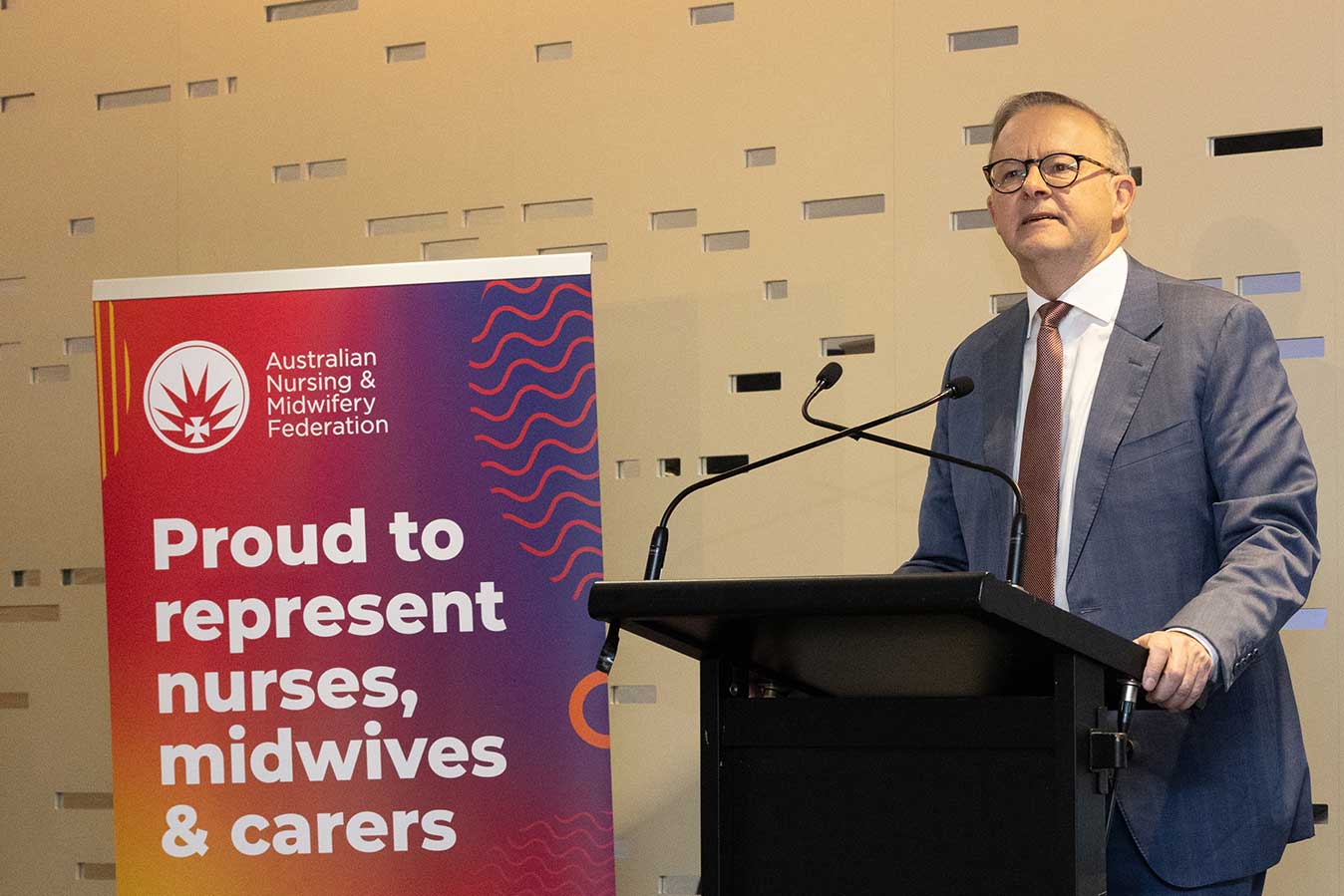
In her report, ANMF Federal Secretary Annie Butler reflected on the past two years and the unprecedented challenges faced by the workforce, highlighted by the COVID-19 pandemic, whose effects are still being felt by the professions and broader health workforce.
Pointing to the International Council of Nurses (ICN) Congress, held in July, Ms Butler told delegates that, interestingly, one of the leading issues emerging across the globe was the rise of industrial action and industrial disputes and strikes. It mirrors Australia’s own experience, she said, with nurses and midwives increasingly using their collective voice as a catalyst for change.
She listed a number of key priorities that the ANMF and members have continued to lobby for over a number of years, including: better use of nurse practitioners and eligible midwives; nurses and midwives working to their full scope of practice; better use of nurse-led/midwife-led care; a national nursing and midwifery workforce strategy; safe staffing ratios across sectors, especially aged care; guaranteed effective transition to practice for all nurses and midwives; and supporting students to enable them to transition into the workforce. For 20 years, the ANMF has also called for aged care reform, Ms Butler said, and following the Aged Care Royal Commission and under a new Labor Government, change has finally begun with RN 24/7, mandated minimum care minutes, and a 15% wage increase for aged care workers.
But there is still a lot of work to do, Ms Butler stressed, with the Biennial National Conference aimed at shaping the future directions that the ANMF nationally must now take. Key priorities, reflected in many of the motions presented, include workforce reform and addressing shortages, every health professional working to their full scope of practice, the removal of collaborative arrangements for nurse practitioners, and placing nurses and midwives at the heart of Medicare and primary healthcare reform.
Illustrating the ANMF’s growing influence and seat at the table, Prime Minister Anthony Albanese made a special guest appearance to address delegates, making time in his busy schedule in the lead up to last Saturday’s historic Voice to Parliament referendum.
“There have been few professions that shape our lives as profoundly as the ones that you have all chosen,” Mr Albanese said.
“Your [ANMF] members are there at the beginning of our lives and you are there at the end, and you are one of the essential ingredients that makes it possible to live all the years in between to the very fullest.
“I could stand here and do nothing but sing your praises. I could spend the next 10 minutes finding different ways to say how vital nurses and midwives are. But if there’s one thing that you don’t need, it’s someone standing here saying nice things to you, then walking out the door. No matter how positive they are, words lose their weight of meaning if they’re not backed by action, and that is not the path that my team has taken. If there’s something Australia has had enough of, it’s governments that make announcements but don’t deliver.”
Mr Albanese went on to say how since coming into government as Labor leader, he has delivered on a range of commitments, including RN 24/7 in nursing homes, with 98% of nursing homes now having a registered nurse on site around the clock. While aged care minutes were also legislated, and the government funded a 15% wage increase for aged care workers.
The Prime Minister said other key priorities have included the Secure Jobs Better Pay Act, which will improve gender pay equity and job security, greater investment and reforms for Medicare, 180,000 free TAFE places in areas of shortages, and a pledge to establish more than 50 urgent care clinics across the country.

“These [clinics] are giving Australians urgent care, taking pressure off emergency departments all over the country, and the nurses, who are the backbone of course, of those departments. And all Australians will need, isn’t a credit card, just a Medicare card. Now what all that adds up to is strengthening Medicare, support for the aged care system, providing additional university places in medicine, additional places in TAFE for the sector, is a medical system where Australians don’t treat their own health as something that they need to put off until it’s absolutely necessary. But a system that works for people.”
Mr Albanese concluded his speech by telling delegates, “You have our thanks, and you have our respect”.
“You also deserve decent wages and conditions. Most importantly, you deserve a government that doesn’t just talk about it, but acts.
“You are the largest union in this country and that’s because you understand that together, together your clout is much more than speaking as just individuals, which is why unions are important, which is why the work of this union matters and why my government will always listen to you.”
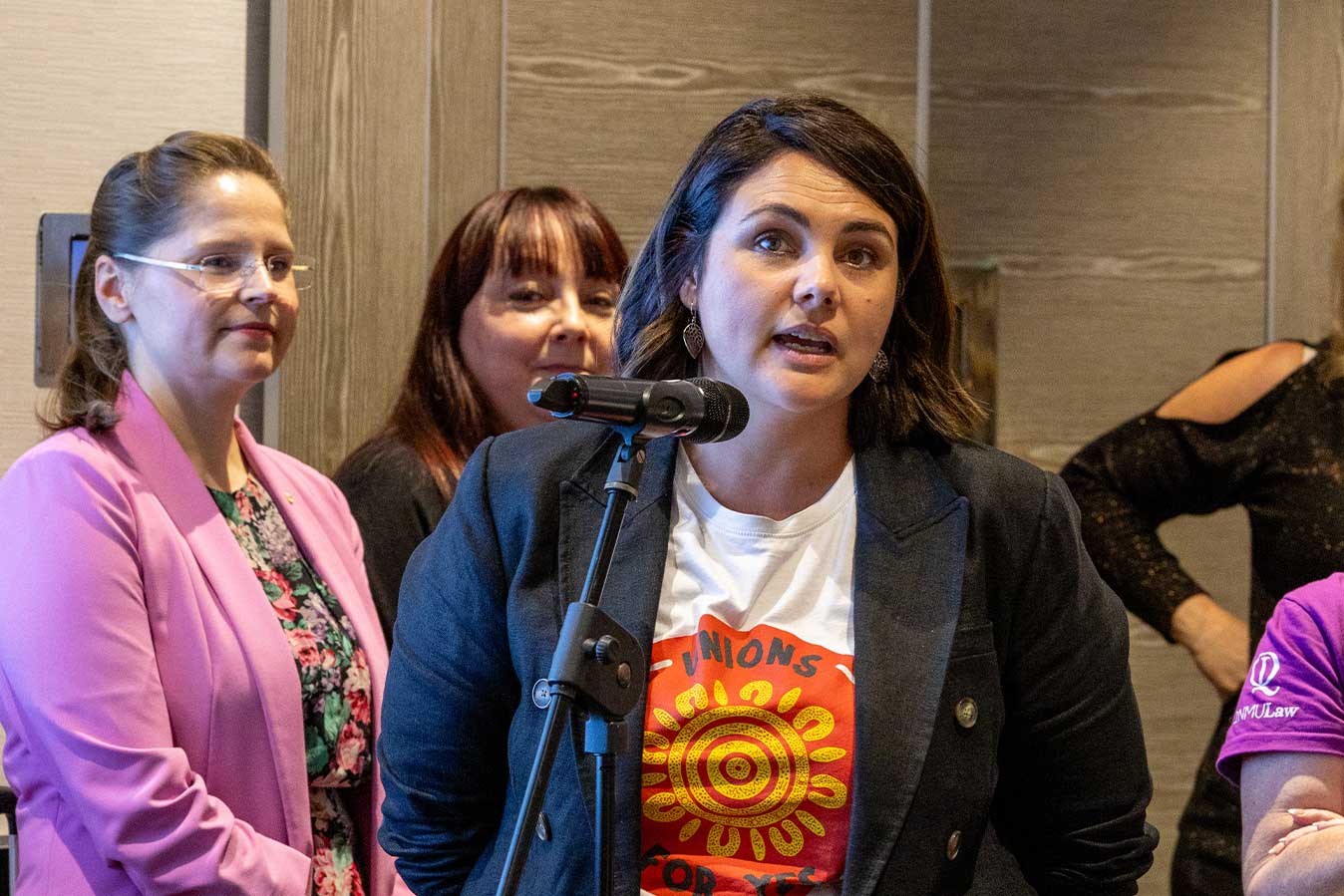
Echoing the Prime Minister, Health and Aged Care Minister Mark Butler told delegates it was a challenging time for health in the face of an ageing population with more chronic diseases, growing mental health issues, and financial pressures following decades of cuts and neglect to Medicare. The COVID-19 pandemic has only exacerbated these issues.
“Really, what that means, is not only dealing with some of the short-term pressures, it means trying to update those deeply cherished universal health systems, the MBS and PBS, to reflect the change in nature of patient demand,” explained Mr Butler.
“And the MBS Medicare was set up for single episodes of care. But when you’d have an infectious disease, or when you fell off the ladder, or when your child fell off the skateboard, you went to the doctor, you saw the doctor and the nurse, you were fixed up, you were given a single course of medicine perhaps, and you didn’t go back until you fell off the ladder again. It’s very different now, isn’t it? The bread and butter of healthcare now is chronic disease, and it demands a very different response.”
Mr Butler said that at the heart of the government’s strengthening Medicare agenda sits how to “unleash the potential of our existing [health] workforce” to ensure all health professional are working to their full scope of practice. Other areas of focus will include increasing the impact of nurse practitioners and making it easier for people to enter nursing and midwifery.
“In spite of there being obviously some parts of the health sector that are nervous about this, this scope of practice review that we’ve got Professor Mark Cormack chairing, unleashing the potential of all of our health workers, for me, is one of the most important platforms for reform over the coming years.’
Australia’s Chief Nursing and Midwifery Officer, Alison McMillan, outlined Australia’s first ever National Nursing Workforce Strategy, currently in its stage one consultation phase, which will look at workforce sustainability, including the challenges of regional, rural and remote nursing, to ensure that the nursing workforce is supported to meet current and future health and aged care needs across the country.
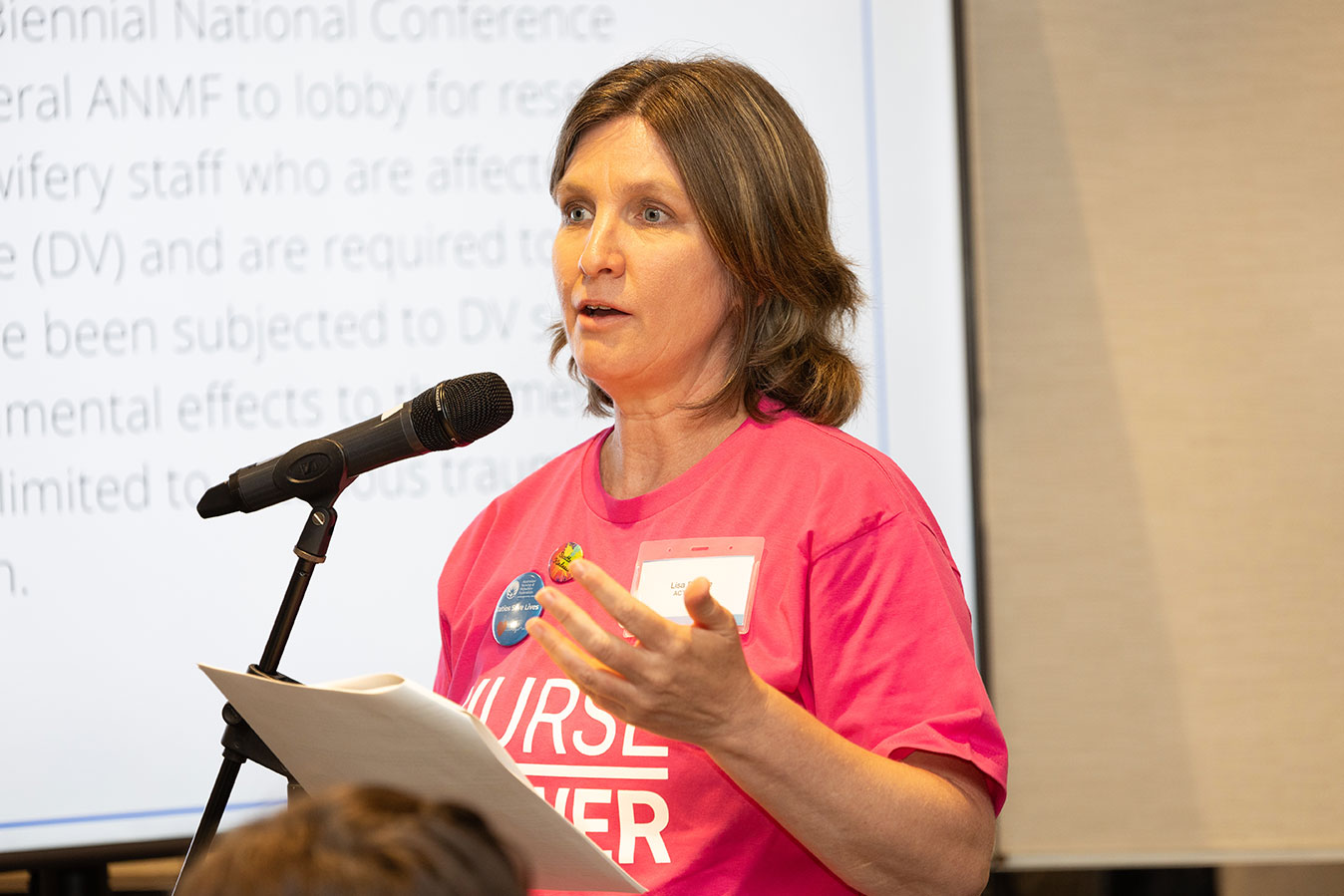
Professor McMillan urged delegates to take an active part in current consultation in order to help drive and form the profession into the future as it considers issues such as what skills nurses will need, what role will technology play, and how leadership, including the political skills of nursing, can be enhanced.
“We’re aiming to establish a common vision for nursing in Australia and promote strategies for how we enact that vision, develop a range of actions that can be implemented across the system, create a framework for collaborative action between all stakeholders, acknowledge and inform state and territory nursing strategies and plans, and other relevant Commonwealth plans,” Professor McMillan explained.
During the conference, delegates put forward and debated a range of issues facing the professions. All resolutions are yet to be officially endorsed by the ANMF’s Federal Executive.
Notices of motion included:
- Lobbying both federal and state governments to support the future workforce by providing payment for clinical placements undertaken as part of their courses.
- Lobbying the federal government to abolish tertiary education fees for nursing and midwifery students.
- Working with the federal government to address attrition rates of nursing and midwifery students linked to financial burden.
- The ANMF leading a national campaign to address nursing workforce shortages across the country, including improved recruitment and encouraging return to practice.
- That Federal ANMF lobby for legislation comparable to the previous amendment to the Crimes Act 1900 (NSW) to protect nurses and midwives from unacceptably high levels of workplace violence.
- That the ANMF lobbies and negotiates with the Federal Government for the NMBA to recognise, regulate and register Assistants in Nursing (AIN).
- That the Federal Government update the legislation for aged care minutes to specifically mandate enrolled nurse care minutes as part of the required skill mix to ensure safe staffing and skill mix.
- That the Federal ANMF lobby for research into nursing and midwifery staff who are affected by domestic violence and are required to care for people who have been subjected to DV.
- That the ANMF work with the federal government to improve access to services in rural communities and address current barriers on access to these services to facilitate better health outcomes.
Workforce issues dominated debate at the conference, with delegates highlighting the need to attract and retain nurses and midwives, payment for clinical placements, and greater support for those working across regional, rural and remote.
Victorian delegate Andrew Morgan put forward a Notice of Motion to provide payment for students on clinical placement as, for many, the cost of studying nursing is too much to bear. As it stands, nursing and midwifery students spend weeks in clinical placements each year, often with extended travel time, and lack of appropriate accommodation, in order to meet the required 800 hours for a Bachelor of Nursing degree. But they are not paid, and the time requirements of the clinical placements often means they are unable to continue with their work commitments, leaving them without income, which can affect their health and wellbeing.
Mr Morgan said, industrially, the timing is right for an intervention, with incentives such as this needed to help curb nursing and midwifery staffing shortages as the professions struggle to gain recruits into the sector.
Earlier in the day, Australia’s Chief Nursing and Midwifery Officer, Professor Alison McMillan, told delegates that she was working with universities and the Council of Deans of Nursing and Midwifery to improve the issue.
“The way that we’ve done clinical placement in the past is not going to work in the future. We need more flexibility, more adaptability. A generation is coming that is different, so how do we still meet educational needs of the undergraduates?” Ms McMillan posed.
ANMF (Victorian Branch) Secretary Lisa Fitzpatrick said she hoped policymakers didn’t make much-needed support for students a difficult problem to solve.
“There’s a very quick step and that is pay them [students] during their clinical placement,” Ms Fitzpatrick said.
“I do hope that we don’t try and make it complicated and that we just actually get on and do something rather than have national committees, and national roving consultation. It’s very clear. The students have been telling us for years – we just need nursing voices, including at your [Commonwealth Department] level to actually support the funding to make it happen.”


